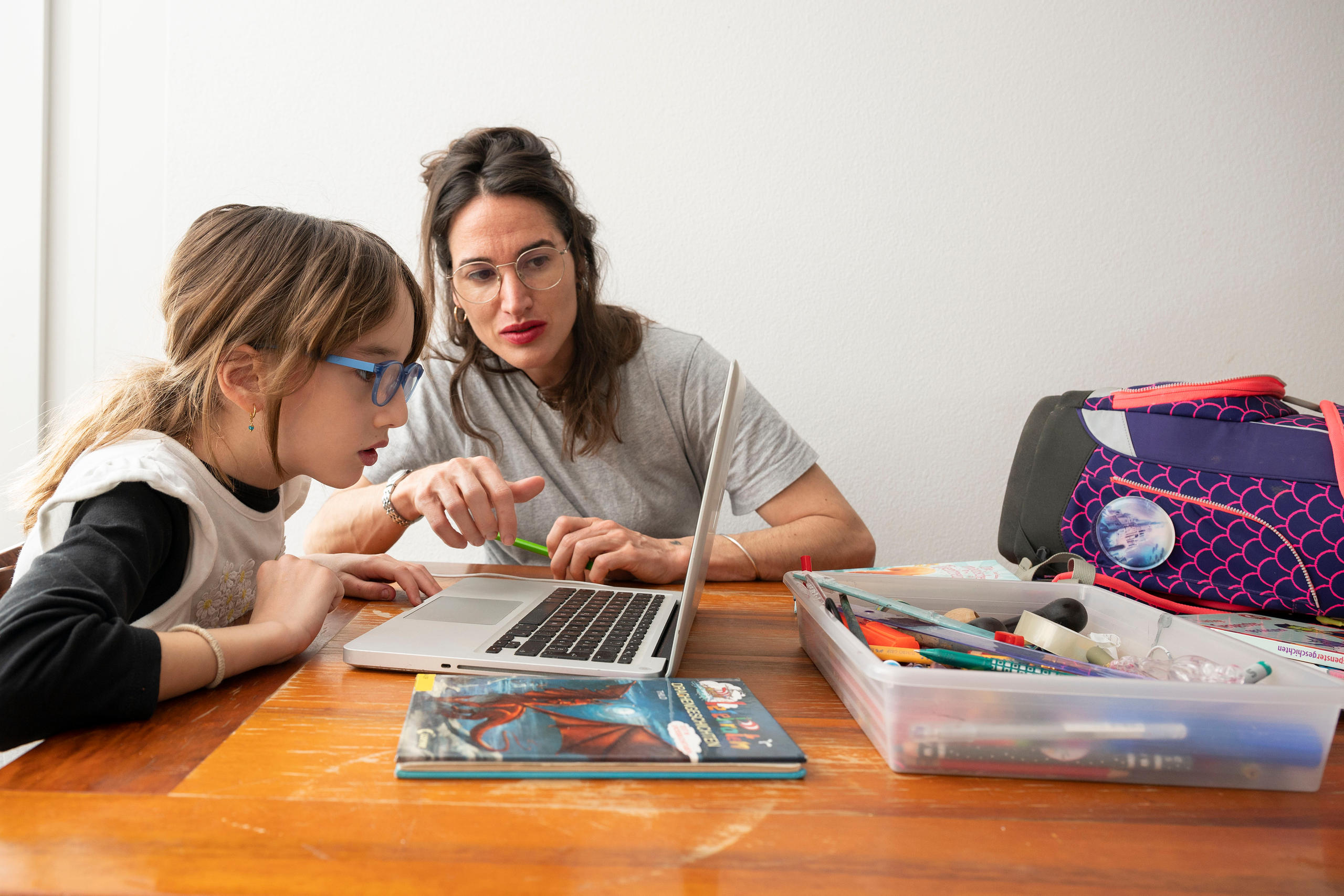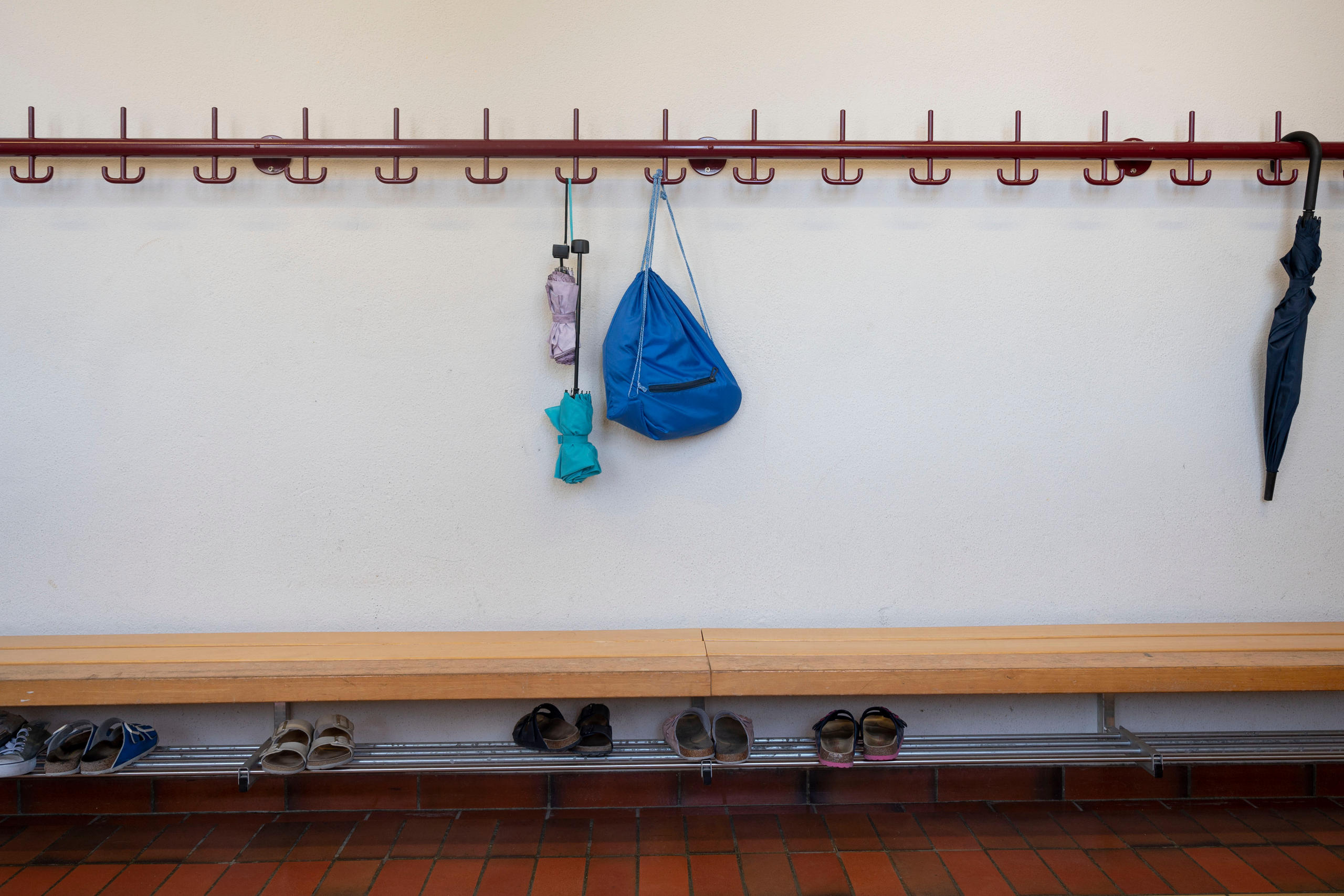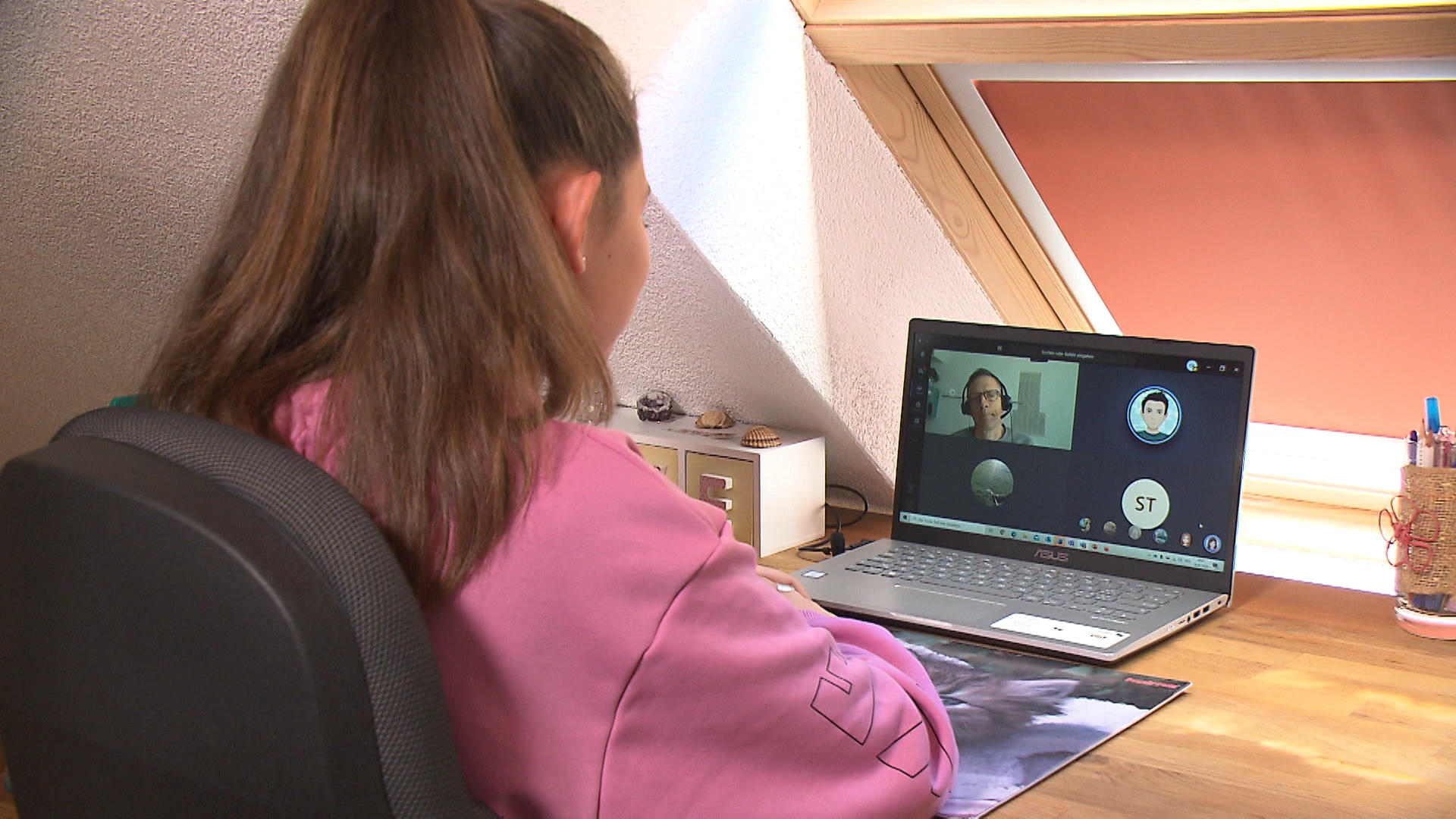
How are Swiss schools and pupils coping with closures?

It has been over three weeks since Swiss schools were closed nationwide to help stop the spread of the coronavirus. Teachers, pupils and parents have had to adapt quickly to homeschooling. A challenge for all.
The government’s unprecedented announcement on March 13 that all schools would close from the following Monday until April 19 – although mooted beforehand – still came as a shock. In some cantons the measure continues until the end of the month.
On April 8, the government said that the nationwide anti-coronavirus restrictions would be extended until April 26, but that there are plans for a gradual loosening of some measures from the end of the month. The government said it would discuss what would be covered by this during its next meeting on April 16. Interior Minister Alain Berset did say howeverExternal link that schools were in the middle of the list and that “primary schools would be treated differently than universities. The goal is to exit as fast as possible without endangering the favourable development to health.”
In the meanwhile, around one million children and young people are currently affected by school closures.
+ More on why Switzerland changed its mind and closed schools here
Schools: quick turnaround
Teachers and schools have been working around the clock to find solutions for remote learning, as each school needs to provide an age-appropriate solution to deliver remote learning content and stay in touch with their students, explained Beat A. Schwendimann, board member of the German-speaking Federation of Swiss teachers (LCH).External link
“Many teachers now hold daily videoconferences with their students, send material electronically or in the mail, and assign activities that students can do at home,” he told swissinfo.ch in email comments.
“The current situation reveals that not all schools and teachers are equally well prepared for remote learning. While some schools already have been using technology-supported learning tools for some time, other schools have to catch up with building their infrastructure and training their teachers.”
Over the past week, both public institutions and companies have started offering phone and online support and training for teachers, he added.
Help on hand
The Schwyz University of Teacher Education, for example, has made a LernenTrotzCoronaExternal link (learning despite corona) platform in which experts have posted advice on topics such as how to structure school work during distance learning or ideas for projects. Demand has been high from teachers, parents and pupils. (250,000 accesses in 14 days).
The Swiss union of French-speaking teachers has also pointed to helpful resourcesExternal link, while Rahel Tschopp, head of media education and computer science centre at the Zurich University of Teacher Education, has set up a free hotlineExternal link offering advice for teachers on lessons and managing home working. It has 15 people manning the phones and demand is also high, she told Swiss public television SRF.

Another issue is the question of exams, which is especially important for students in their final year. A coordinated, political decision needs to be made soon regarding exams and graduations, added Schwendimann. Some cantons have decided to hold exams under the health authorities’ social distancing conditions, but not oral exams, for example.
The homefront
Parents report that their children are managing to get their allotted work done, but that there are challenges. Primary school pupils are getting worksheets to do via post or have been picking them up from the school (at staggered, allotted times to avoid other pupils). Some pupils are already using existing online tools. Kindergarten children are being allotted “homework”, such as regular exercises to do such as counting or learning songs. Teachers are remaining in contact via WhatsApp, email and phone.
In general, parents have been impressed by the diligence of their teachers: for example, one parent reported that they had a communication from the school on the evening the closures were announced, saying that there would be remote lessons from the following Wednesday.
The main challenges were the amount of supervision needed for younger children while learning and the difficulty of working parents fitting this in around their schedules. “It’s exhausting,” several parents agreed.
Older pupils are quote often being given online lessons, which means logging in to a conference tool at a certain time (and being told off if you overslept!). Pupils say they have had to adapt pretty quickly to this new way of working. There have been reports of crashing software when everyone is online at the same time using the same tool, and a lot of time spent scanning and emailing in work. One pupil said she was spending less time learning overall though as she was more concentrated.

More
School children adapt to distance learning
In addition, many children are missing their friends and usual activities. “My children say they would prefer to be at school,” admitted one parent to swissinfo.ch.
However, another parent reported that their child was learning more independently than before, which they feel is a useful skill for the world of work.
How long will it last?
Distance learning may well be something that parents, teachers and pupils will have to get used to – given that the coronavirus is still very much present in Switzerland.
+ Click here for all the latest figures and news on the coronavirus in Switzerland
Silvia Steiner, head of education in Zurich and head of the cantonal conference of education directors – cantons are in charge of educational matters in Switzerland, which is why the government-ordered nationwide closure was so exceptional – has already mooted that closures could last longer – maybe as far as the summer.
“We are planning to be ready if measures to be extended,” she told the NZZ am Sonntag in mid MarchExternal link. Scientists have pointed to 3-4 months for an easing of the pandemic, she said.
Media reports had suggested there would be an announcementExternal link on schools before Easter, however no clear update has been made. More information could come after the government discusses relaxing certain anti-coronavirus measures in its next meeting of April 16.
Experts have already raised the prospect of learning loss, due to lack of schooling. Another issue is that not all pupils have access to the right conditions and parental support for homeschooling (watch out for our article on this).
In the meanwhile, it looks like digital learning will be here to stay after the coronavirus passes. Tschopp, of the teachers’ hotline, has observed something of a sea change in attitudes among teachers over digital learning and this may provide some impetus for the future. “Many are starting to really think: how can I do it differently than before?” Tschopp said.
What are your experiences of children remote learning in your country? Leave us a comment below. We may use a selection in a follow-up story.

More
How much tech should be in Swiss classrooms?

In compliance with the JTI standards
More: SWI swissinfo.ch certified by the Journalism Trust Initiative


















![The four-metre-long painting "Sonntag der Bergbauern" [Sunday of the Mountain Farmers, 1923-24/26] had to be removed by a crane from the German Chancellery in Berlin for the exhibition in Bern.](https://www.swissinfo.ch/content/wp-content/uploads/sites/13/2025/12/01_Pressebild_KirchnerxKirchner.jpg?ver=1ea8acae)











You can find an overview of ongoing debates with our journalists here . Please join us!
If you want to start a conversation about a topic raised in this article or want to report factual errors, email us at english@swissinfo.ch.